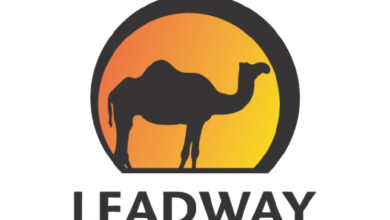How NAIC Is Driving Nigeria’s Food Security Agenda

Managing Director/CEO of NAIC, Mrs. Folashade Joseph
Food security is one of the things considered critical by the present administration. Nigerian Agricultural Insurance Corporation (NAIC) is working hard to make sure that farmers and other stakeholders in the Nigeria’s agricultural value-chain are insured to ensure the actualization of Buhari’s food security agenda. EDET UDOH writes.
The most important aspect of agriculture is that it’s the source of the world’s food supply. No matter where or what you are eating, the ingredients in your meals came from somewhere.
Agriculture provides most of the world’s food and fabrics. Cotton, wool, and leather are all agricultural products. Agriculture also provides wood for construction and paper products.
Interestingly, in Nigeria, Buhari’s newly established council and agriculture policy show that his administration is committed to promoting national food security hence his pledge to invest in food security and nutrition knowledge dissemination, skills’ development, and information management systems to enhance agricultural productivity for national food security
Buhari while speaking in New York at the 2021 Food Systems Summit as part of the High-Level meetings of the 76th Session of the United Nations General Assembly, said Nigeria had developed a “food system focused development agenda that prioritizes healthy diets and affordable nutrition, inclusive, efficient, resilient, and sustainable, which will contribute to rebuilding our economy, creating jobs and spurring growth across sectors while sustaining our ecosystems.”
He said the plan was the outcome of a wide range of stakeholder-engagement geared towards a better understanding of their food systems, experiences and needs.
Suffice to say that for the success of agricultural development and food security in Nigeria, there must be a robust agricultural system that takes care of agricultural activities from farm clearing, crops cultivation, harvest, production, transportation, packaging, and storage. The system must also take into cognizance associated risks such as natural disasters like flood, wind, or man-made catastroph like fire or cattle grazing that may likely come up as a result of these activities . And the risks can only be taken care with a proper insurance policy or policies in place.
In line with this, the Nigerian Agricultural Insurance Corporation (NAIC) has continued to play its role of providing insurance coverage for farmers to deepen agricultural sector growth, ensure food security and enhance sustainable economic development.
It should be known that NAIC is a wholly-owned Federal Government of Nigeria insurance company set up specifically to provide Agricultural risks insurance cover to Nigerian farmers.
The entity known today as Nigerian Agricultural Insurance Corporation (NAIC) was initially called the Nigerian Agricultural Insurance Company Limited. It was formally incorporated in June, 1988 but later turned into a Corporation in 1993 by the enabling Act 37 of 1993.
NAIC came into being as a child of necessity, destined to succeed. It’s establishment was informed by Government’s concern for a specialized Agricultural Insurance Company to provide insurance cover to farmers as a result of the vacuum created due to the unwillingness of conventional Insurers to accept Agricultural risks, which they considered too risky.
Today, NAIC is indeed on top of it’s game of being insurer of first choice for Nigerian Farmers; working with other relevant stakeholders to provide risk protection and other interventions for the teeming farmers to ensure the actualization of President Buhari’s economic diversification and food security programmes.
To prove this, NAIC In the last five years (2016-2020) indemnified 284,223 farmers across the country from losses with the payment of N2,490,313,176.72 as claims to the affected farmers.
The breakdown showed that in 2016, NAIC paid N260,972,116.05 as claims to 141,061 farmers; in 2017, 71,278 farmers benefitted from N150,674,561.68 claims settlement; N327,109,943.05 was paid to 14,897 farmers in 2018; while in 2019 and 2020, 12,678 and 44,307 farmer received the sum of N877,250,976.30 and N874,305,579.64 respectively as claims.
To make its impact felt, the NAIC boss said the corporation is presently working with the umbrella body of all farmers in Nigeria called All Farmers Associations of Nigeria (AFAN), and over 42 commodity associations across Nigeria, and other single-commodity associations such as Rice Farmers Association of Nigeria (RIFAN), Maize Association of Nigeria (MAAN), Maize Growers, Processors and Marketers Association of Nigeria (MAGPAMAN), Cashew Growers Association, Yam Growers Association, Cassava Grower Association, Cotton Planters Association, Poultry Association of Nigeria.
This is to ensure the they’re closer to the farmers whereby they (farmers) are sensitized on government plans and agenda especially those concerning them and agriculture generally.
The Managing Director/CEO of NAIC, Mrs. Folashade Joseph, while speaking with this medium disclosed that prompt payment of claims has always been the cardinal principle of NAIC.
According to her, “As a responsible player in the agric insurance space we, at NAIC, believe that prompt payment of claims is the ultimate goal of any insurance business”.
“Nigerian Agricultural Insurance Corporation was established by the Federal Government to shield farmers from the adverse effects of natural disasters. We will continue to provide insurance cover to all categories of operators, whether small, medium or large scale across the Agricultural Value Chain,” she assured.
The corporation is not slacking in its drive to ensuring a sustainable food security through purpose-driven Initiative and innovation with introduction of new insurance policies that take care of the needs of farmers and other stakeholders in the agriculture value-chain.
Therefore, as crisis from open grazing increases across the country, Nigerian NAIC has introduced new insurance cover to mitigate losses incurred by farmers during farm destruction by animals’ invasion.
The policy that is called Cattle Damage Insurance Policy, is designed to cover farmlands and the crops on it in the event that cattle strayed in and damage the plantation.
NAIC Managing Director, Folashade Joseph said the policy which will help in returning farmers to the pre-loss era is of great benefit to farmers, many of whom have stayed off their farms for safety.
Violent attacks on farmers in food-producing areas have stopped farming activities especially in the southwest and the middle belt regions. Issues came to head in February when some indigenes in the South West region of Nigeria rose against open grazing by Fulani herders with a warning to them to vacate the forest reserves in the region so that farming activities can resume.
This led to anti-open grazing laws in some states to nip the crisis and ensure the return of farmers to their farmland to boost food production.
The attacks took a toll on the agriculture sector, lowering the output of industry which the majority of Nigerians are turning to in efforts to diversify the economy and widen the country’s revenue base.
The drop in support to the economy from the sector was buttressed by statistics from the National Bureau of Statistics (NBS) that stated that agriculture’s contribution to the nominal GDP in the first quarter of 2021 was 21.42 per cent, lower than the 24.23 per cent contributed in the fourth quarter of 2020.
The policy, Folashade saiid, as gotten the support of its technical partner, a Reinsurance firm that has approved the introduction of the policy.
“NAIC has received approval from its technical partner to immediately embark on providing cattle insurance cover to mitigate farmers’ losses from the incidence of animals eating up farms’ produce before harvest.
“Farmers with genuine Cattle Damage cover and whose farm is being destroyed by cattle will be identified after full consideration of all the technicalities involved with the approval of the re-insurance partner.
Findings show that plans to introduce cattle damage insurance by NAIC, started since 2017 when Bashir Haliru Binji was the acting Managing Director
The announcement for the take off of the policy by NAIC was made in June during the 44th meeting of the technical committee of the National Council of Agriculture and Rural Development (NCARD) at International Conference Center in Abuja.
Meanwhile, NAIC boss in line with her administration agenda to deepen insurance penetration has emphasized the importance of robust data to the growth of the industry, and called on Insurance operators to ware-house farmers’ data, which they should leverage to promote their operations.
She explained that index insurance cannot operate effectively without accurate data, adding that Insurance business thrives on effective and sustainable data.
She hinted that NAIC is discussing with its supervising ministry, the Central Bank of Nigeria(CBN) and other stakeholders including Farmers associations on the need to get a perfect data for farmers across the country.
This, she said, will allow the corporation monitor farm processes and storage, limits insecurity, and ensure the targeted beneficiaries of the federal government agric programme truly get it.
According to her, “it is only when we have the correct data which we will improve every year that we can effectively achieve our objectives. That is key to us in NAIC and we have spoken to our supervising ministry and other stakeholders like CBN, on the need to get a perfect data.
“If we have this, it will help us to monitor our farm processes, storage. it will also help us as an insurance company in the agric sector to deploy products that will be useful to the agric sector.
“Data for farmers will helps us know how many farmers we have in each state and what each person is into such as rice production, maize, cassava and even processing of the produce. This is very important so that we can effectively monitor and improve on our processes.”
Disclosing that NAIC will soon deploy drones once necessary licensing and regulatory approvals have been done, he added that, the drone was meant to inspect and monitor farmlands against flood and insecurity.
This, she pointed out, is one of strategies adopted by the firm to improve service delivery to policyholders, saying, the drone is not active for now as NAIC is in the process of obtaining a license to engage in such venture.
The NAIC Act Cap. N89, Laws of the Federation of Nigeria empowers NAIC to underwrite agricultural risks and even subsidise the premium chargeable on some categories of crop and livestock items, by as much as 50%. However, when agricultural projects are financed through credit facilities from whatever sources, they must be insured with NAIC.
“In spite of the above provision in the NAIC Act, the corporation had reached out to private sector operators through special consortium arrangements in the past.
“However, our experience is that the corporation bears all the underwriting processing costs, including inspection, etc, while the private operators just sit by and receive their premiums. Even when claim crystallises, it takes some time to get the proportion receivable from some of the private operators.
“As the corporation has done in the past, it is open to any collaboration to give adequate insurance cover to all farmers in Nigeria as long as such arrangement does not undermine its enabling Act or break any other law of the Federal Republic of Nigeria,” NAIC boss explained.





